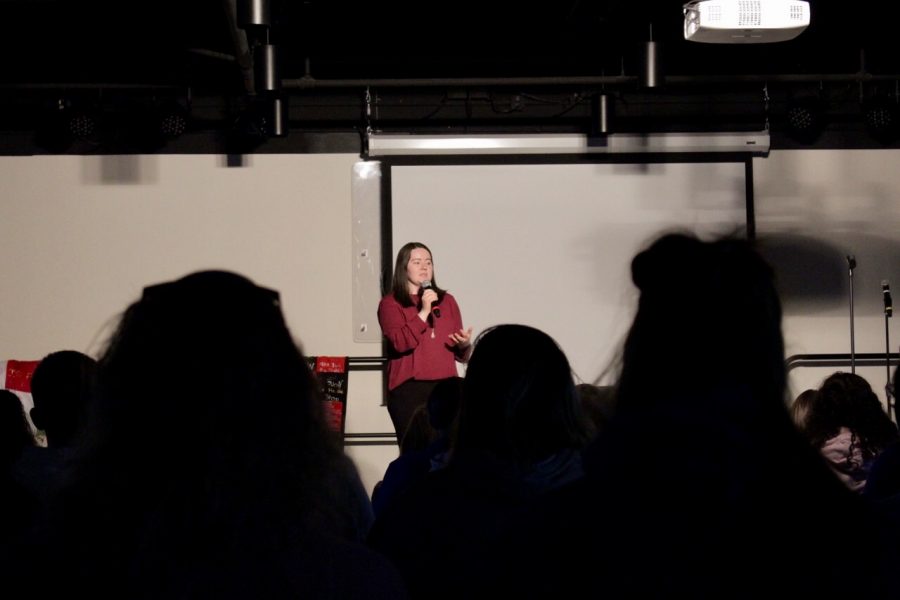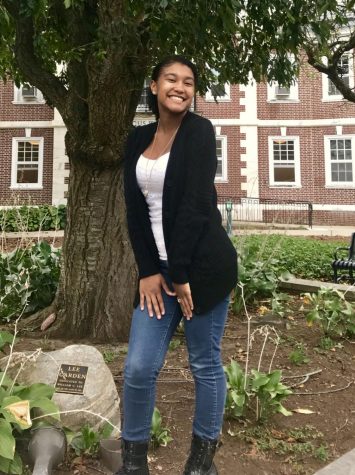Central ‘Takes Back the Night’ to Combat Sexual Violence
April 15, 2019
Survivors and bystanders of sexual assault and unhealthy relationships came together for Central Connecticut’s annual “Take Back the Night” last week to support one another in a safe space.
The event was meant to provide healing and to create awareness of sexual violence while also fighting the notion of victim-blaming. It is one of many events in April hosted by CCSU’s Ruthe Boyea Women’s Center to help combat sexual assault and harassment.
Those in attendance included Central students, faculty and staff, along with President Dr. Zulma Toro and Vice President for Student Affairs Dr. Michael Jasek.
Dr. Toro opened the event, speaking on her pledge her first year as president to take action against those who partake in “creating a toxic environment on campus” and to hold them accountable for their actions. Since then, Dr. Toro claimed to be transparent in all the actions taken, but admits action and justice take time to recover.
“It has been frustrating for you and for me,” Dr. Toro expressed. “Real sustainable change takes time. It is not just about a person we’re hiring and firing. We have a roadmap for where that change needs to take us.”
The “roadmap” consists of various plans to alter campus climate in order to improve the learning environment. This includes the arrival of new interim Chief Diversity Officer for the University Dr. Nancy Barceló, implementing a 15-point action plan and required bystander training during CCSU’s orientation programs.
“I stand with you and my door remains open. You are more than survivors. You are inspiring, strong, brave individuals and are valued members in the Central family,” Dr. Toro said.
Throughout the night, several women spoke on their personal experiences with sexual violence; many of whom felt empowered to share their stories when they realized they were not alone.
“Life is changed overnight,”Amy Oestreicher, the guest speaker, stated. “We have to question everything we know. In order to find our ground, we need to start talking about it, even if it comes out in a long-winded ramble. We need to speak out story.”
Oestreicher shared her personal history with sexual abuse and how she worked through her trauma. She compared it to a “gazelle galloping off their energy” after an attack.
“As humans, we have to discharge this energy and move on [by getting] this secret out of us and telling our story. As survivors, it is important we move through things by speaking what [has] happened to us,” Oestreicher said.
“Before I could speak what happened, I turned to painting, dancing, any kind of outlet to get that out of me so I could see it somewhere outside of me where it wasn’t stuck,” Oestreicher continued. “Finally I could get to the point where I was comfortable enough. I had the creative distance [so] I could take a step back and say, ‘Okay, I was sexually abused.'”
Jasek emphasized that, aside from moving forward, people should take action to help change the current culture, not only for women but for men and members of the LGBTQ community as well.
“Think about what you’re gonna do to make a difference in this culture we live where people feel like they can take things without repercussions. Let’s be a Blue Devil and look out for each other,” Jasek said.
CCSU has programs available for victim advocacy through counseling available in the Marcus White Hall, Room 205. For more information, you can also visit the Office of Victim Advocacy and Violence Prevention website at www.ccsu.edu/diversity/victimAdvocacy.





